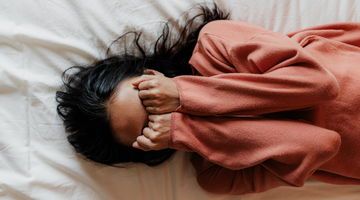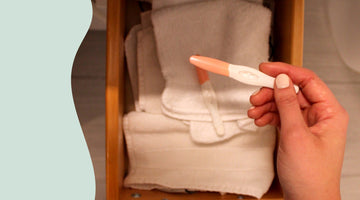What are the warning signs of depression?

Depression is much more than temporary sadness. It can interfere with your life by affecting how you think, feel, and function. Depression is a real health condition that can become severe if left untreated. Let’s discuss the signs and symptoms of the condition, different types of depression, and ways to treat or manage depression.
Signs and symptoms of depression
Symptoms of depression can differ depending on gender and age. Women are more likely to experience oversleeping, overeating, weight gain, and feelings of guilt. Hormonal cycles can also impact the severity of depression symptoms. Some people may have unexplained physical aches and pains, or feelings of increased irritability or anger. Other symptoms can include exhaustion, aches, or trouble with memory.
Possible signs of depression that anybody can experience include:
- Trouble sleeping
- Unexplained energy loss
- Loss of interest in activities or general apathy
- Changes in weight and appetite
- Memory, focus, and trouble with decision-making
- Unexplained physical ailments (headache or muscle soreness, among others)
- Feeling worthless, helpless, or hopeless
- Irritability, anxiety, or recklessness
- Low sex drive
- Thoughts of suicide
Types of depression
Understanding and recognizing the type of depression you’re dealing with can help you figure out an effective treatment plan. Some treatments work better for particular forms of depression and may depend on the individual.
Mild or moderate depression
Depression might be mild or moderate, with symptoms that can start to slowly eat away at your confidence and self-esteem. Dysthymia is a chronic form of milder depression. With this type of depression, you experience consistent low-grade symptoms of depression for long periods, breaking only occasionally for more normal moods.
Major or clinical depression
Also called major depressive disorder, severe depression causes severe symptoms that last for around six months if untreated. It’s less common than mild or moderate forms of depression and can either be recurrent or only occur once in a lifetime.
Atypical depression
Atypical depression is a type of major depression with specific symptom patterns. Common symptoms include weight gain, sleeping too much, sensitivity to rejection, and a heavy sensation in your arms or legs. You may experience a temporary easing of mood-based symptoms when something positive happens in your life. This occurrence sets atypical depression apart from other forms of major depression.
Seasonal affective disorder (SAD)
Reduced daylight may cause depression. You might experience new or increased feelings of hopelessness or increased stress during certain seasons — typically seen during late fall and winter time. Seasonal affective disorder usually lasts for the entire season with shorter hours of light and is more common in women and younger people. You might treat SAD with light therapy alongside more common treatments for depression, including various other forms of therapy or antidepressants.
Can you be depressed and not know it?
Depression does not necessarily mean you are experiencing overwhelming feelings of sadness. Recognizing the other associated symptoms will help you diagnose the problem earlier and find an effective treatment. The causes of depression can be a complicated mix of biological, psychological, and social factors. Certain medications may also trigger symptoms of depression.
Depression may be hard to recognize because the symptoms tend to occur gradually over weeks or sometimes even years, and the symptoms can often be attributed to other things like stress at work, home, or other factors.
Feeling depressed may compound if you feel ashamed of those feelings, and shame may make it harder to seek help. If you think you may be depressed, it’s worth speaking with your primary care provider. If you ever have any thoughts of harming yourself or others, it is extremely important that you seek help immediately. Depression tends to become more severe the longer it’s left untreated.
Factors that could make you more susceptible to depression include:
- Trauma or abuse
- Genetic factors (a family history of depression)
- Chronic illness or pain (such as cancer)
- Problems in relationships and other stressful life experiences
- Loneliness and isolation
- A disposition that tends toward pessimism, excessive worry, or self-criticism
- Misuse of alcohol and other drugs
How can you cope with depression?
Depression is very real, and many people live with depression. There are a few different things you can try to reduce symptoms of depression. This can include finding a therapist, staying in touch with those you care about, and practicing self-care. Making healthy dietary choices, staying active, and taking time to do things you like may also help you feel better.
If positive lifestyle changes don’t stave off depression, it might be helpful to speak with a mental health professional. If symptoms associated with depression linger for two weeks, get in touch with your primary care provider.
You can treat depression with therapy, medication, or both. Part of treatment for milder forms of depression often includes cognitive-behavioral therapy (CBT) or other types of talk therapy. Your primary care provider may also recommend self-help groups. In more severe cases, your treatment plan may include a combination of therapy and antidepressants.
If you feel like something’s wrong and you can’t quite place it, get in touch with your primary care provider. Getting a diagnosis is the first step in finding an effective treatment plan.
Looking for more? Check out our education hub, Real Talk, for additional resources to help you take care of your mind, body, and overall health.
Keep Reading

How stress affects your health
Jun 22

How to boost your feel-good hormones
Apr 17

How Winx Health (formerly known as Stix) co-founder Jamie Norwood prioritizes her mental health
Oct 22








